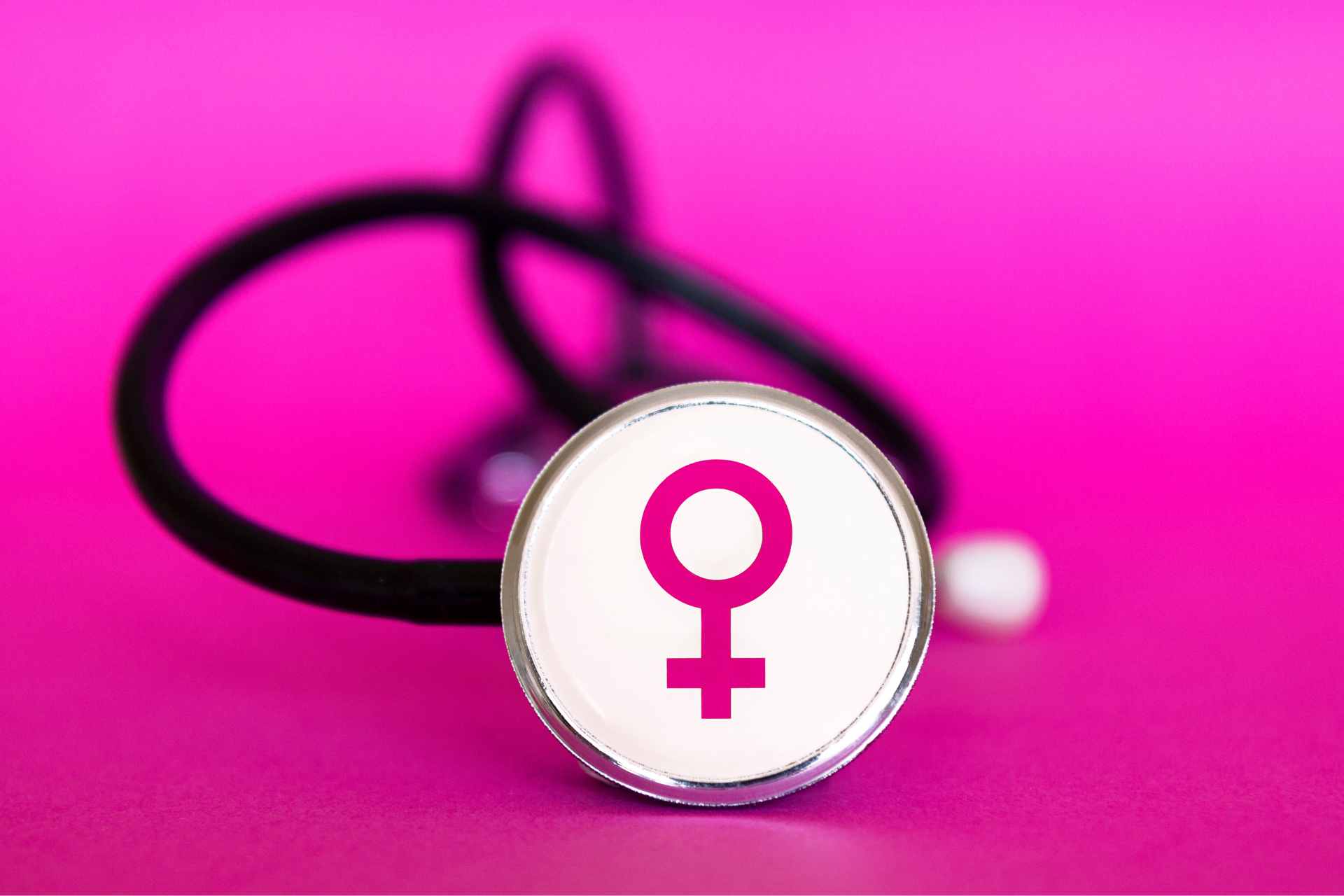
Stony Brook University is celebrating Women’s History Month throughout March, highlighting the achievements of women, raising awareness against bias and promoting social action for equality. This year’s theme is “Community of ME, Community of WE.”
Coordinated by the Office of Multicultural Affairs and presented by the Women’s History Month Committee, the program is an annual tradition and features a range of educational, social and cultural programs. The opening event took place March 1 in the Student Activities Center, where a panel of SBU faculty, staff and alumni discussed the roles of women in healthcare.
“Women’s History Month is a time to acknowledge and celebrate women’s contributions to society, as well as the perseverance it too often still takes for women to have their voices heard,” said President Maurie McInnis in her welcome video. “I am incredibly proud of the way Stony Brook fosters an academic community in which diversity of experience, background and thought is at the core of our excellence from our Women’s Leadership Council. Our innovative programs have made this institution one of the best in the world for inclusivity and in fostering gender equality in medicine.”
Brief welcome remarks were provided by Judy Jaquez, associate director of Multicultural Affairs, and Cheryl Chambers, associate dean of students and director of Multicultural Affairs. The panel discussion was moderated by Kate Valerio, a retired health educator at Stony Brook and host of WUSB-FM’s “Health Matters” program.
Panelists included Fatima Daoud Yilmaz, MD, clinical assistant professor, Department of Obstetrics, Gynecology and Reproductive Medicine; Marci Lobel, director, Stress and Reproduction (STAR) Lab and a professor in the departments of Psychology and Obstetrics, Gynecology and Reproductive Medicine; Angela Kokkosis, MD, clinical associate professor, Department of Surgery; and Urszula Zalewski, director of experiential education in the Career Center.
The first question explored women’s reproductive rights, which have been at the forefront of recent highly charged policy debates.

“It seems identifying as a woman or having female body parts is hazardous to your health,” said Lobel. “For starters, women experience more acute and chronic illnesses throughout their lifespan. And while we are now finally paying attention to our ability to have autonomy over our bodies in terms of our reproductive health, this can only happen in a context where we provide all of the other things that are missing in American life. We need access to healthcare for all women — they are the least insured group in American society. We also know that women are the most likely to live a life of poverty. So, we have a lot of work to do here, and we need to get out into the streets and advocate.”
Daoud Yilmaz carried the thought further.
“When the Supreme Court brief was leaked, everyone initially thought that the only thing it would affect is people who seek an abortion or people who provide an abortion,” she said. “But people in my field, which is obstetrics and gynecology, knew instantly that this would affect a lot more than that.”
Among the fallout would be more “maternity care deserts” — counties without a birth center, obstetrician or hospital that provides obstetric services, which Daoud Yilmaz said is already more than 50 percent of the counties in the United States.
“Now you’re going to have OB-GYNs who for either ethical, medical or legal reasons are leaving those areas because they want to be able to provide the full spectrum of reproductive healthcare, which includes miscarriage care, abortion care, pregnancy and postpartum care,” she said. “The second thing that not enough people are talking about is that the next generation of physicians who want to become OB-GYNs is not going to want to train in those areas.”
The panelists then explored how the healthcare system can move toward a more inclusive culture in which women are more integrated into creating policies and practices.

“I think we all realize that healthcare is still very male-dominated,” said Kokkosis. “If you look at publications, the editorial boards are male-dominated. Most of the primary authors are male. Right now, there is a big push for more diversity. As a result, more women are on the editorial boards, more are head editors, they’re publishing more and they’re being recognized more. So there have been some good things happening, but we’re not there. And it took many years for it to happen.”
“I’m not a policymaker, but I’m someone who’s affected by policy,” echoed Daoud Yilmaz. “One of the things that I look forward to the most for the rest of my career is that there’s going to be more and more women at the table making decisions. And then decisions that affect primarily women — like breastfeeding and maternity leave — are not going to be an afterthought. Maternity leave in this country is archaic. Why are we pushing women to be as productive as people who did not recently birth a human being? That’s not something to celebrate. I feel like once we start to position our needs as central primary needs and not an afterthought, a lot more women will be less intimidated about entering STEM fields.”
The discussion ended with advice for students aspiring to careers in healthcare careers.
“I’m lucky that in my position, I’m able to create opportunities for our students,” said Zalewski. “One of the programs that we hosted was for first-generation women in STEM. Every year the participants tell me that they didn’t have access to the resources and information we provided. Working with these students creates a new platform and a new opportunity for these students to be confident about going into medicine or any other STEM field.”
“My advice is to play to your strengths,” added Lobel. “It’s really important to recognize what you’re good at, as well as what you may be not so good at. I tell students that if you’re interested in health or healthcare, you don’t necessarily have to be the person who provides the healthcare.”
Kokkosis urged students to remain open-minded and to keep as many doors open as possible.
“I thought I was going to be a hematologist-oncologist, but when I got into my clinical training, I realized that was absolutely not what I wanted,” she said. “If you have an idea, seek out an opportunity to get more information about it. See if you can shadow someone. You never know what doors are going to open for you.”
— Robert Emproto








